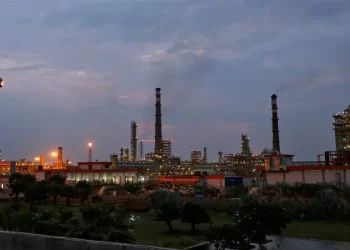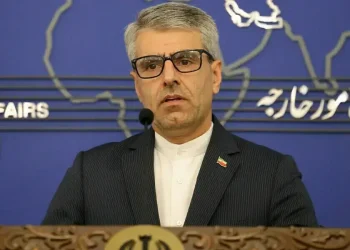BUENOS AIRES, Argentina (news agencies) — Argentines taking to the streets to revel in their Copa América triumph late Sunday inhabit a very different place now than they did 19 months ago, when their World Cup win sent millions surging into the same Buenos Aires square in a howl of collective celebration.
“Glorious,” Diego Cáceres, 38, recalled of Argentina’s massive open-air party on December 18, 2022.
“This is beautiful, too,” he said of Sunday’s crowds cheering and setting off fireworks around the capital’s landmark obelisk after Argentina beat Colombia 1-0 in extra time to win its third straight major tournament. “But it’s a cherry-on-top, or a reminder. It makes me want to go back in time.”
Economic crisis has stalked Argentina for years. But today, annual inflation tops 270%. Almost 60% of the country’s 45 million people live in poverty.
Argentines have become worn out by the high-stakes anxiety of the news: Anti-government protests raging, labor strikes paralyzing cities, President Javier Milei, a self-described “anarcho-capitalist,” unveiling new spending cuts and railing against feminism. This week their televisions flashed dire warnings about the peso hitting new lows against the dollar, dragging the value of their savings down with it.
The last time Cáceres celebrated his national team in this downtown square, he worked as a cook in various restaurants and rented an apartment. Today, he said, he’s unemployed and sleeps on the streets.
“Everything is horrible now,” he said after the game finally got underway in Miami after repeated delays due to fan congestion. “Just when you think things can’t get more expensive, they do.”
Some in this superstitious nation joke that they paid a steep price in Qatar for their first World Cup victory since 1986, pointing to the crises that followed the triumph. “Has anyone checked the terms and conditions of winning the Copa América?” reads one post on X widely shared among Argentines. “I don’t know if I’m up for a second round of winning at any cost.”
But Argentines say that they needed this tournament, and this trophy, more than they could have imagined. For Argentina, South America’s biggest soccer championship offers not just glorious achievement but exquisite, if fleeting, escape.
“It’s our best entertainment, that’s what makes it so important,” said Erika Maya, a 47-year-old homeless mother of six, as she peered at the televised match through the glass of a locked restaurant door. “You can forget everything that’s going on, just enjoy.”









 American Dollar Exchange Rate
American Dollar Exchange Rate